European Year of Cultural Heritage
Conference in Brussels promoted by COMECE (Commission of the Bishops’ Conferences of the European Community) on “Promoting the Christian Heritage of Europe” in the framework of the European Year of Cultural Heritage designated by the European Union for the year 2018. The purpose of the European initiative is to encourage more people to discover and engage with Europe’s cultural heritage, and to reinforce a sense of belonging to a common European space. The slogan for the year is: “Our heritage: where the past meets the future”
(from Brussels) If Europe’s most visited sites are Notre-Dame cathedral and the Sacré-Cœur basilica, there is no doubt that the religious heritage of our continent represents by far the largest dimension of European cultural heritage and the most popular one too. In this respect COMECE (Commission of the Bishops’ Conferences of the European Community) organized a Conference on “the Christian heritage of Europe” in its Brussels seat in the framework of the European Year of Cultural Heritage established by the European Union for the Year 2018. The aim of the European initiative is to encourage more people to discover and engage with Europe’s cultural heritage, and to reinforce a sense of belonging to a common European space. The slogan of the Year is:
“Our heritage: where the past meets the future”
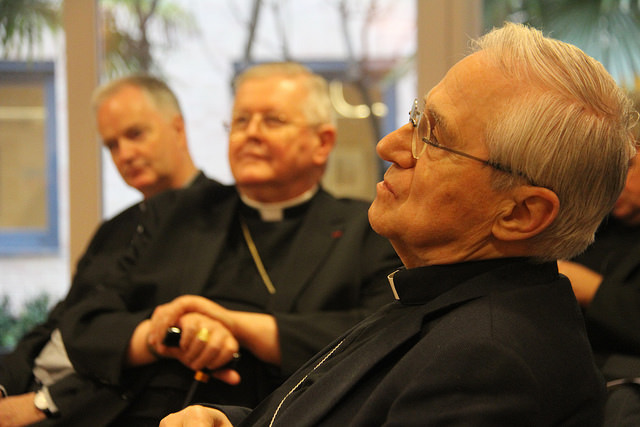 COMECE presented examples of best practice aimed at the enhancement of religious heritage. These include, at European level, the restoration of a hidden gem that withstood the fury of the Communist regime: St. Martin Chapel in Stari Brod/Croatia; the pilgrimage of Saint Columban that can still be made today following its trail throughout the Continent; the melodies of Eastern Europe in the hymns of Samogitia in Lithuania and Chartres’ historical cathedral in France, which today serves as venue for encounter and dialogue.
COMECE presented examples of best practice aimed at the enhancement of religious heritage. These include, at European level, the restoration of a hidden gem that withstood the fury of the Communist regime: St. Martin Chapel in Stari Brod/Croatia; the pilgrimage of Saint Columban that can still be made today following its trail throughout the Continent; the melodies of Eastern Europe in the hymns of Samogitia in Lithuania and Chartres’ historical cathedral in France, which today serves as venue for encounter and dialogue.
(Photo: COMECE)
“Christian culture is unity in diversity”, said Father Olivier Poquillon, COMECE Secretary General: it’s dialogue, respect for otherness. Listening to others. “We are incorporated into anthropological systems that reject whatever is different” while otherness it the heart of a Christian anthropology where man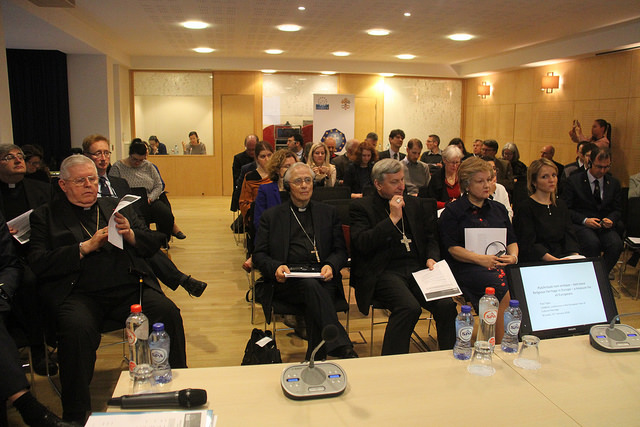
“is a being who relates to others, who receives, shares and transmits life.” Thus here in Brussels there are no specific demands but rather the proposal of a culture that is open to welcome everyone. In the words of Monsignor Paul Tighe, Secretary of the Pontifical Council for Culture, the European Year of Cultural Heritage designated by the European Union for the year 2018 “is a moment that enables us to share what we have, an extraordinary heritage, rich in monuments and works of art, important in terms of its history, culture and art and also at existential level.
Our stones, our traditions, our music, our art, still speak to human heart, still touch the soul.”
Moreover, said Msgr. Alain Paul Charles Lebeaupin,
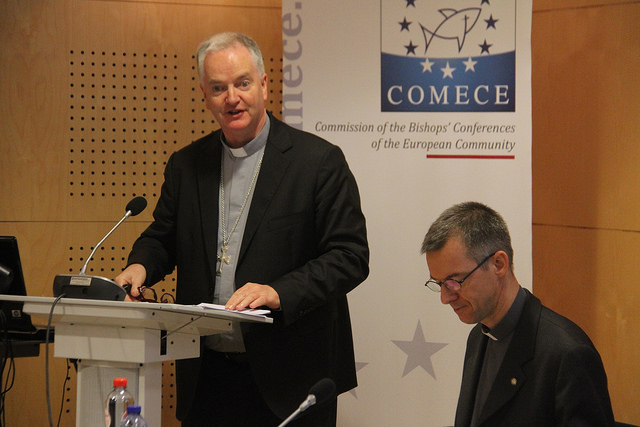 Apostolic nuncio to the European Union, “Europe cannot be built if its peoples do not learn to know each other.” His words were echoed by Tibor Navracsics, EU Commissioner for Culture. “Our societies suffer from fragmentation and the will to live together can no longer be taken for granted.” On these grounds the EU decided to designate 2018 as the European Year of Cultural Heritage.
Apostolic nuncio to the European Union, “Europe cannot be built if its peoples do not learn to know each other.” His words were echoed by Tibor Navracsics, EU Commissioner for Culture. “Our societies suffer from fragmentation and the will to live together can no longer be taken for granted.” On these grounds the EU decided to designate 2018 as the European Year of Cultural Heritage.
“Behind the beautiful facades, behind our best museums and our finest churches, there’s a story that tells us who we are. It carries precious suggestions on our past and on our future, it’s where our roots are. It’s a “heritage we need to know, to cultivate and to transmit.” In fact, said the EU Commissioner, “if nowadays, for example, some of our young people are radicalised in a few months’ time and rebel against their own communities to commit the most atrocious crimes, doesn’t this somehow happen because
we failed to promote our common values and
to create a feeling of belonging for them? If our social inclusion policies fail, is it not because we have forgotten to use our rich, different identities to be united? If so many citizens are wondering what it means to be European, isn’t it because, instead of defining and explaining, we took it for granted that they knew the answer?”
“Emptiness is not the answer” to this question, nor is “cultural amnesia” or abusing the neutrality concept “that prevents us from learning about our past, thereby making our societies poorer and jeopardizing their cohesion.” “The European Year for Cultural Heritage – concluded the EU Commissioner – will be a success only if we use our cultural treasures to answer these thorny questions; if we use this opportunity as an invitation to share and to love our common past and to build a better Europe for the future.”